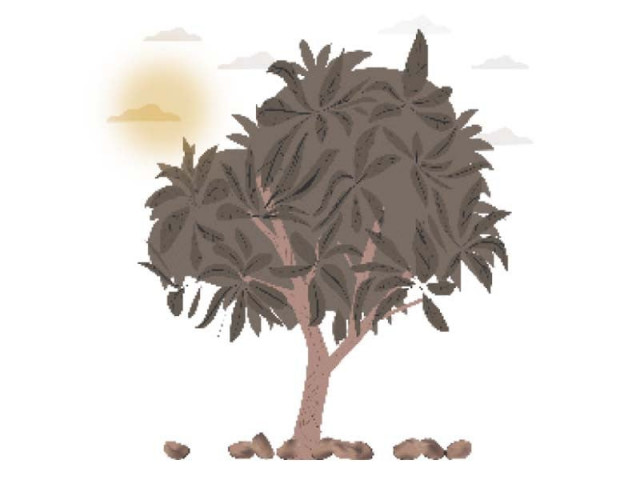New policy jeopardises mango exports
PFVA accuses dept of plant protection of bias against hot water treatment plants

The Department of Plant Protection (DPP) has come under scrutiny for its inadequate strategy, raising doubts about Pakistan’s mango export target. The sudden announcement of new Standard Operating Procedures (SOP) granting No Objection Certificates (NOCs) to hot water treatment plants for the season has sparked concerns that the entire endeavour may be jeopardised.
“The poor strategy of the DPP has put the mango export target in jeopardy,” expressed Muhammad Shehzad Shaikh, Chairman of The All Pakistan Fruit & Vegetable Exporters, Importers, and Merchants Association (PFVA), in a letter to the Ministry of National Food Security & Research. The DPP’s sudden issuance of new SOPs granting NOCs to hot water treatment plants for this season has raised concerns among industry stakeholders.
The DPP introduced a new and complex SOP on June 12, which has been criticised for being time-consuming. Mangoes exported from Pakistan undergo hot water treatment to protect them from fruit flies.
The closure of 90% of the 35 hot water treatment plants, due to what has been described as discriminatory policies and favouritism by the plant protection department, has resulted in significant losses for Pakistan. It is estimated that the country is facing a loss of $44 million due to the closure of these treatment plants, said Shaikh.
The letter highlights that, under the guise of new SOPs, certain treatment plants have been allowed to operate while modern plants, which involve million-rupee investments, have been forced to shut down.
The closure of hot water treatment plants poses a risk of falling short of the mango export target for the year, warned Waqas Ghani Kukaswadia, an agriculture sector analyst at JS Global. These treatment plants play a crucial role in ensuring the quality and safety of exported mangoes by protecting them from fruit fly infestation.
The letter further states that the plant protection department has refused to issue NOCs to the plants due to minor objections that are unrelated to the basic functions of the plants. Interestingly, non-approved plants have been processing mangoes for export to various countries, including Europe, Iran, Australia, China, Kenya, and Iraq, for many years without receiving any complaints from buyers.
Union of Small and Medium Enterprises (UNISAME), Chairman, Zulfikar Thaver urged mango exporters to urgently raise the matter with the Ministry of Science and Technology, Ministry of Commerce, Ministry of Agriculture, and to file a petition in the high court. He emphasised the need to address the misgivings of the DPP and their baseless objections that hinder mango exports on flimsy grounds. Thaver asserted that if the exported mangoes undergo hot water treatment, which eliminates fruit flies and ensures thorough washing to remove impurities caused by the flies, there is no reason to block exports.
“The plant protection department is known for its harmful activities and is unaware of the modern techniques used by modern plants,” stated Thaver, adding that it was high time they started familiarising themselves with modern techniques. With 90% of hot water treatment plants closed, the existing plants are under immense pressure as they treat mangoes beyond their capacity. This raises concerns about the treatment of mangoes exported from Pakistan, said Shaikh.
The PFVA has expressed concerns about the need to establish agreed-upon international standards due to the closure of 90% of the processing plants. Failure to do so may result in a potential ban on the export of fruit fly-infested mangoes from Pakistan. The PFVA has informed the Federal Ministry of Food Security that there are certain elements benefiting from the non-approval of hot water treatment plants. They have called for action to be taken against officials who are harming national trade.
Despite several attempts made by The Express Tribune to contact DPP Director General Allah Ditta Abid, no response was received at the time of filing this story. Other officials from the department declined to comment, raising further concerns about transparency and accountability within the plant protection department.
Published in The Express Tribune, July 7th, 2023.
Like Business on Facebook, follow @TribuneBiz on Twitter to stay informed and join in the conversation.



















COMMENTS
Comments are moderated and generally will be posted if they are on-topic and not abusive.
For more information, please see our Comments FAQ